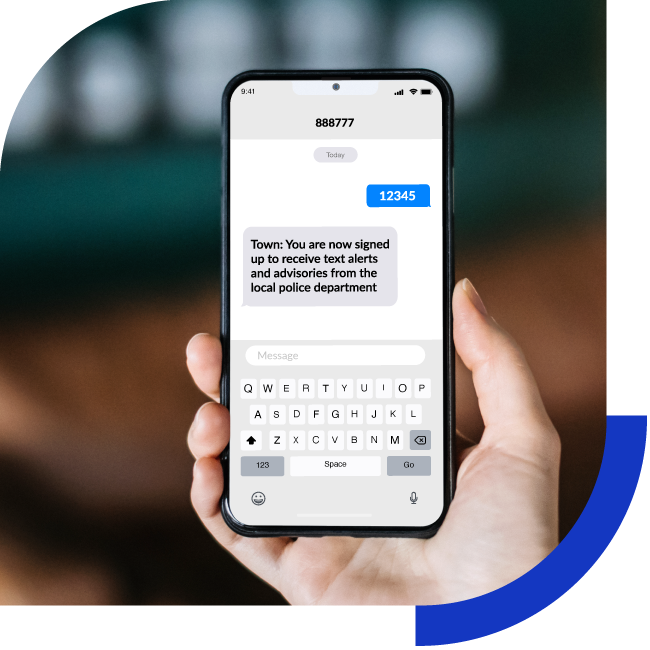Everbridge Nixle
Looking to receive alerts from your local agencies and businesses? Text your ZIP code to 888777 to opt-in or sign-up to stay informed on critical events that directly affect you.

Stay safe and informed before, during, and after a critical event in your community
Receive alerts for severe weather, criminal activities, severe traffic, missing persons, or local events. Everbridge Nixle keeps you up-to-date with relevant information from your local public safety departments and schools.
Want to opt-in to receive alerts?
Text your ZIP code
to 888777
Looking to opt-out?